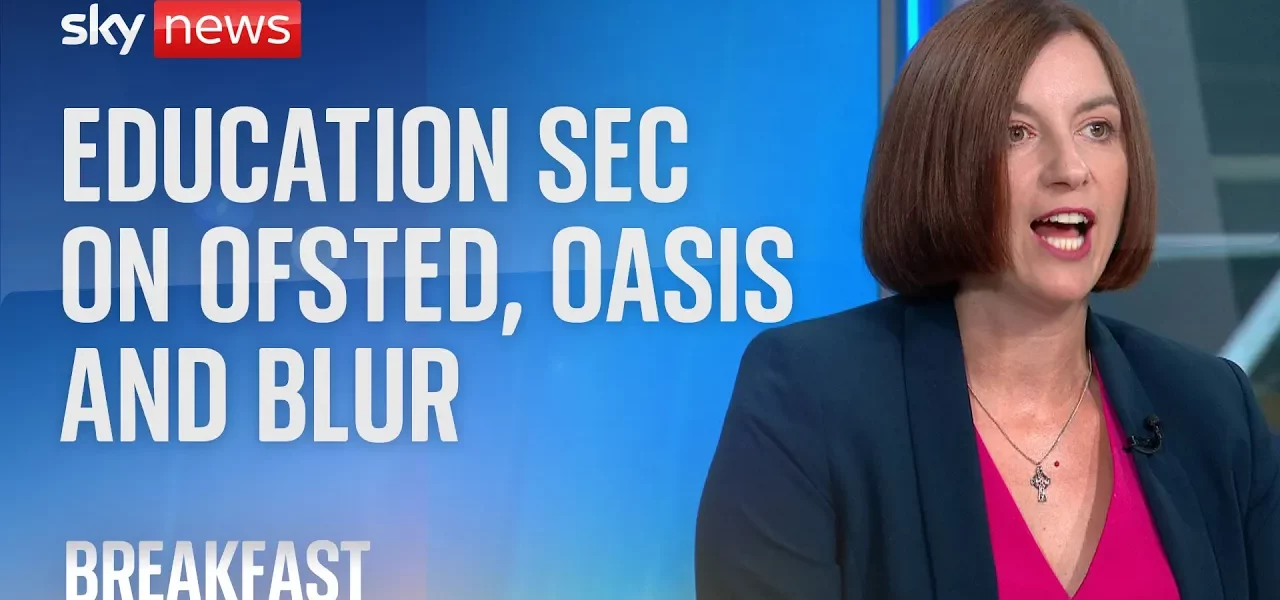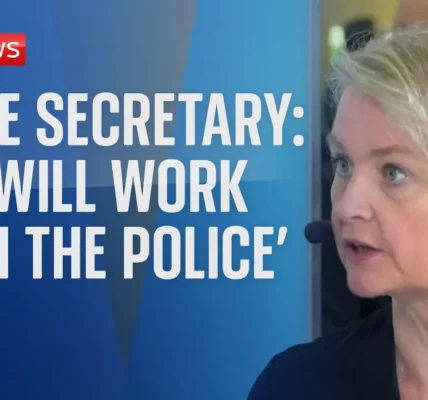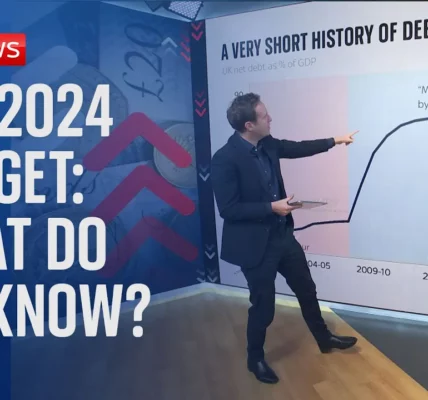Bridget Phillipson Discusses Ofsted Reports and Educational Reform

In this comprehensive article, we delve into the recent changes announced by Bridget Phillipson, the Education Secretary, regarding Ofsted reports, the pressing issue of racism in schools, and the broader implications for educational standards in the UK.
Introduction
The landscape of education in the UK is undergoing significant reform, particularly in the way schools are evaluated through Ofsted reports. Bridget Phillipson, the Education Secretary, has announced a pivotal change in the reporting system, which aims to provide a more nuanced view of school performance. This article will explore the implications of these changes, the challenges posed by racism in schools, and the responsibilities of educators and politicians in fostering a safe and inclusive environment for all students.
Changes to Ofsted Reports
One of the most significant announcements made by Bridget Phillipson is the end of the one-word judgments previously used in Ofsted reports. This change reflects a shift towards a more comprehensive assessment of schools, focusing on their strengths and areas for improvement.
The New Report Card System
Starting next September, schools will be evaluated using a report card system that provides detailed insights. The objectives of this new system include:
- Providing parents with more information about school performance.
- Reducing the high-stakes nature of school evaluations.
- Fostering an environment focused on driving up educational standards.
Reasons for the Change
The decision to reform the Ofsted reporting system stems from the recognition that the previous method was inadequate. Phillipson emphasizes the need for a system that better serves families, children, and educators alike. She states, “The system we’ve got at the moment just isn’t working.” The emphasis on providing actionable feedback rather than a simplistic label aims to enhance the educational landscape.
The Impact of Ruth Perry’s Tragic Death
Phillipson’s announcement comes in the wake of the tragic death of Ruth Perry, a head teacher whose suicide was linked to a negative Ofsted ruling. This incident has highlighted the urgent need for systemic reform in how schools are judged.
Conversations with Ruth Perry’s Family
In her discussions with Perry’s sister, Julia Waters, Phillipson acknowledged the profound impact of Perry’s death on the education community. The family’s tragic experience has underscored the necessity for change, bringing a human element to the discussions surrounding educational evaluations.
Shining a Light on the Need for Reform
While Phillipson had been advocating for changes prior to Perry’s death, this incident has amplified the call for a better system. It serves as a poignant reminder that the stakes in educational evaluations are not just numbers and reports; they involve real lives and futures.
Addressing Racism in Schools
Another pressing issue discussed during the interview is the alarming rise in racism within schools. Reports indicate that children, some as young as four, are being suspended for racist behavior, which raises serious concerns about the culture within educational institutions.
The Unacceptable Reality of Racism in Education
Phillipson expressed her strong disapproval of the current situation, stating, “It is completely unacceptable.” She advocates for schools to take action against racism while ensuring that there are consequences for unacceptable behavior.
Balancing Discipline and Education
While recognizing the importance of discipline, Phillipson emphasizes that sending young children home should be an exceptional response. Schools should also engage with parents to instill an understanding that racism is intolerable. A balanced approach that combines discipline with education is crucial in addressing this issue.
The Role of Politicians in Shaping Discourse
Phillipson also touched on the broader societal context, acknowledging that politicians have a responsibility to foster respectful discourse. She recognized that the political climate has sometimes contributed to a normalization of bigotry, which can influence young minds.
Collective Responsibility
All stakeholders, including politicians, educators, and parents, share a collective responsibility to challenge racism and promote inclusivity. Phillipson calls for careful and thoughtful language in political discourse, urging all to recognize our common humanity.
Funding and Investment in Education
As part of the upcoming budget discussions, Phillipson confirmed plans to levy VAT on private school fees. This financial move aims to redirect funds into state schools, ultimately improving educational standards and supporting teachers.
Utilizing Funds for State School Improvement
The proceeds from the VAT on private school fees will be invested in various educational initiatives, including:
- Recruiting more teachers.
- Supporting mental health initiatives for students.
- Enhancing overall educational resources.
Conclusion
The recent announcements made by Bridget Phillipson represent a significant step towards reforming the education system in the UK. By replacing one-word Ofsted judgments with a more comprehensive report card system, addressing the urgent issue of racism in schools, and committing to financial investments in state education, there is hope for a brighter future for all students.
As we move forward, it is imperative for all stakeholders, including parents, educators, and policymakers, to engage in ongoing discussions about educational standards and the importance of inclusivity. Together, we can create a supportive environment that fosters learning and growth for every child. To learn more about educational reforms and related topics, explore our related articles.
“`




